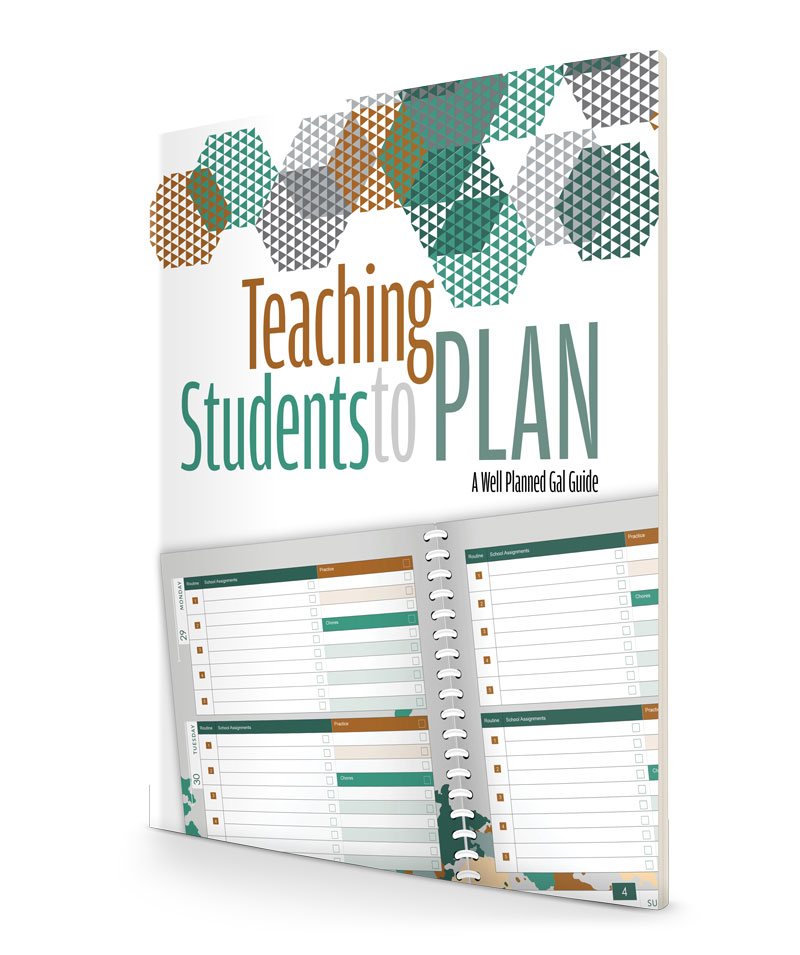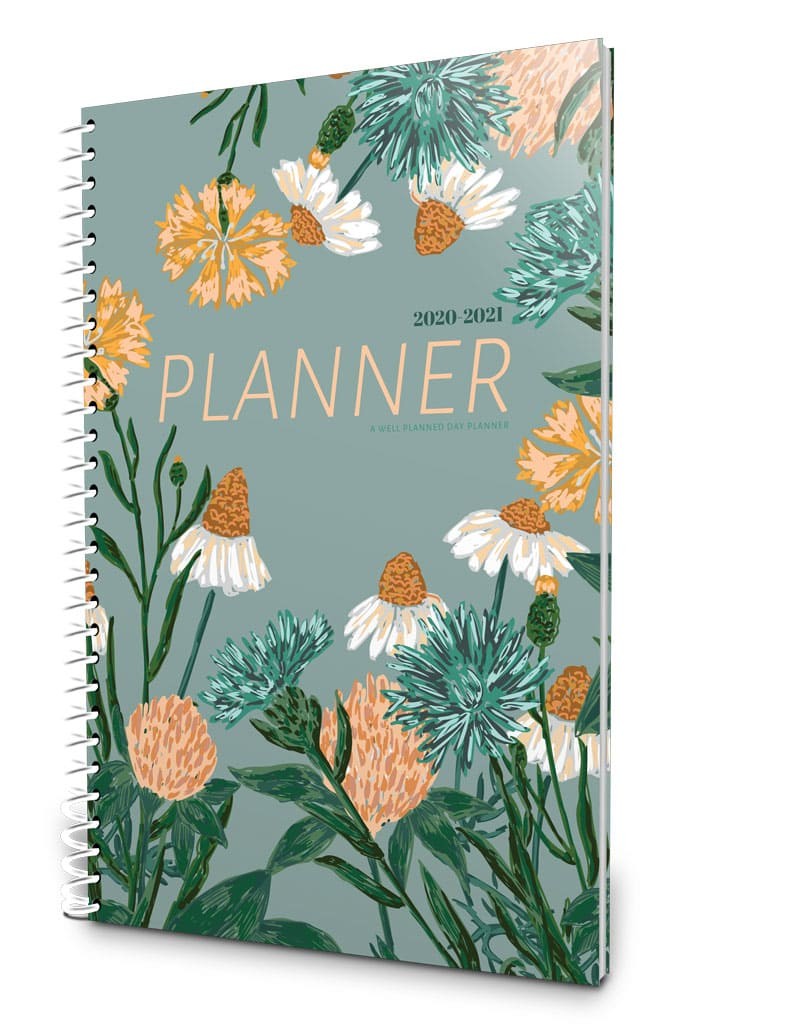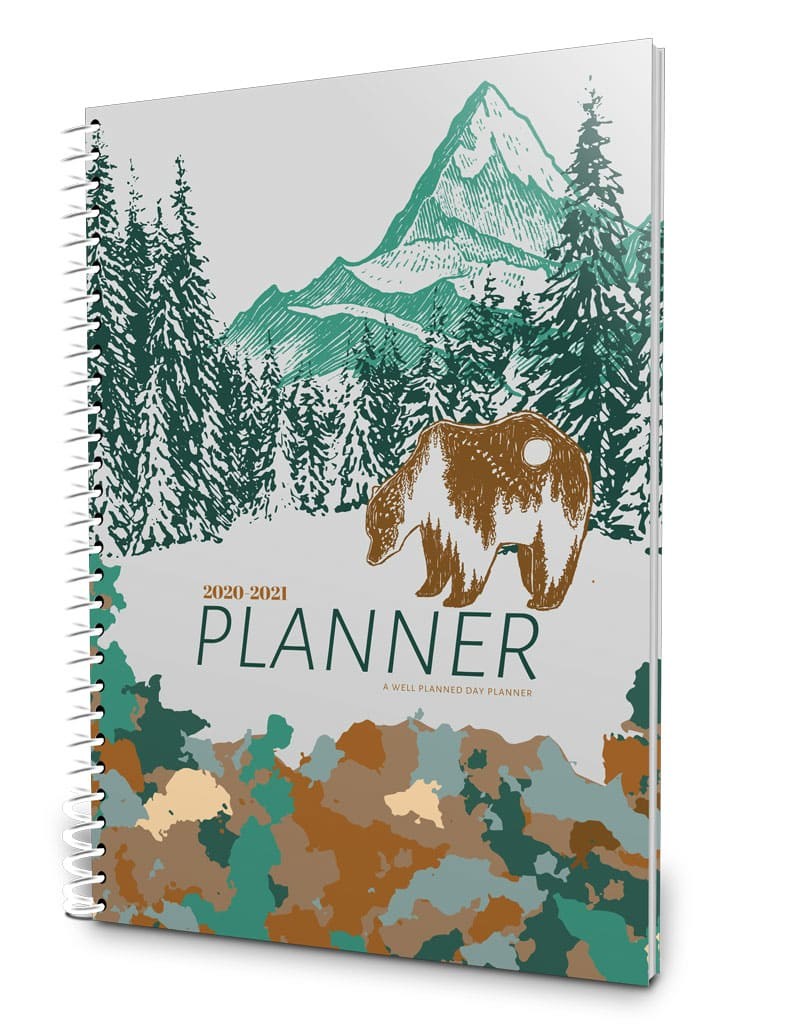Did you know that the best time for students to begin to establish good time management habits is somewhere in the third to fifth grade range? We might argue that we aren’t planners by nature, so why should we force such things on our children? Perhaps Will wants to be like Daddy, and Daddy doesn’t plan, so why should he? Maybe Hannah has a great memory like Mommy’s and keeps track of everything well, so there’s no reason to bother with a planner.
3 Reasons to Teach Your Student How to Plan
Here are three reasons to set aside those arguments and consider teaching your child how to plan!
Form Habits Early…And Keep Them Around
Habits are being formed, even in elementary school, that will have a lasting impact on life. It’s true that you don’t ever really forget how to ride a bike, but it’s a whole lot easier to learn that skill as a child than as an adult. The muscle memory just works better! The same is true of planning. A habit of creating routines, setting goals, and prioritizing to-do lists is much easier to develop when life is uncomplicated than when the fullness of adulthood hits. Teach your child to ride the planning bike now, and he or she will carry that smoothly into high school and adulthood, naturally incorporating the skills into daily life.
Minimize Excuses
Do you ever get frustrated when your child conveniently “forgets” a task? Or do you get tired of the “I’m bored!” complaints? Good time management tackles both problems. When a task is written down and prioritized, there’s no excuse for forgetfulness. And, as your child learns to set goals for both the necessary and the fun parts of life, it will be easy to provide constructive activity suggestions based on goals your child has already established.
Choose Together
Do your children regularly beg for one more activity? One more commitment? Do you struggle to show them that there is just no more time? Stress is an increasing problem in our culture, attacking even children as we run from one activity to another. But they don’t always see what is causing the stress because they don’t really understand how their time—or the family’s time—is being spent. As we teach our children time management skills, we can also teach them to see how commitments and activities fill up a schedule quickly. They can feel like they are an active part of the decision-making process and can take ownership in helping manage the family time well. Stress is reduced for all involved, mutual decisions are made about activities, and the begging turns into more considered evaluations of priorities.
Planning isn’t just about making to-do lists. It’s about establishing a good, healthy rhythm of life that introduces solid life skills, reduces stress, and strengthens relationships. So, start early and establish well!
Free E-Book With Purchase of Student Planner
Teaching students how to manage their time, set goals, determine priorities and plan accordingly is a life skill that will impact both their school days and their adult years. Well Planned Guide contains step-by-step articles that educate you how to teach time management, begin developing independence in your students and rewarding success along the way.













